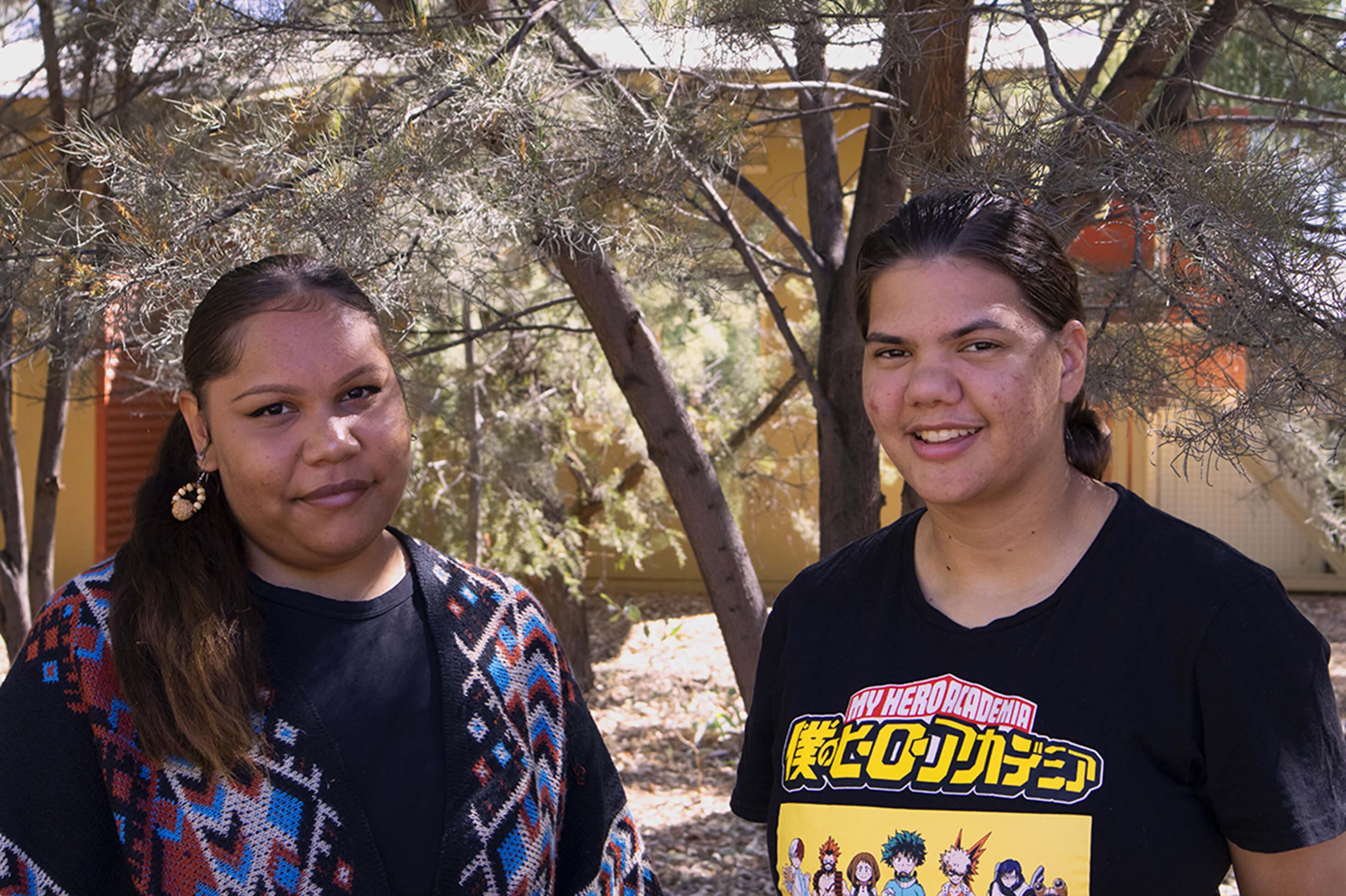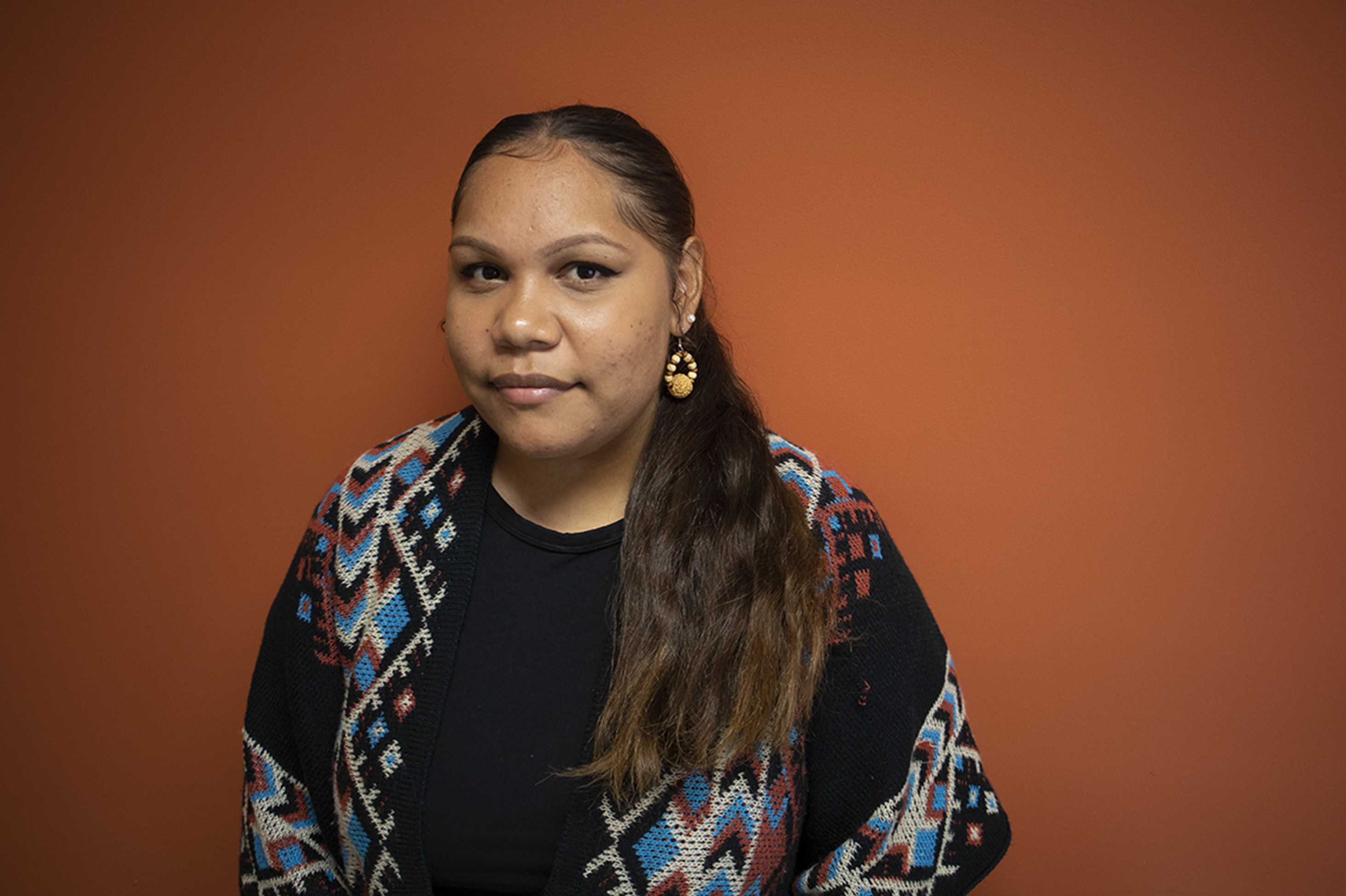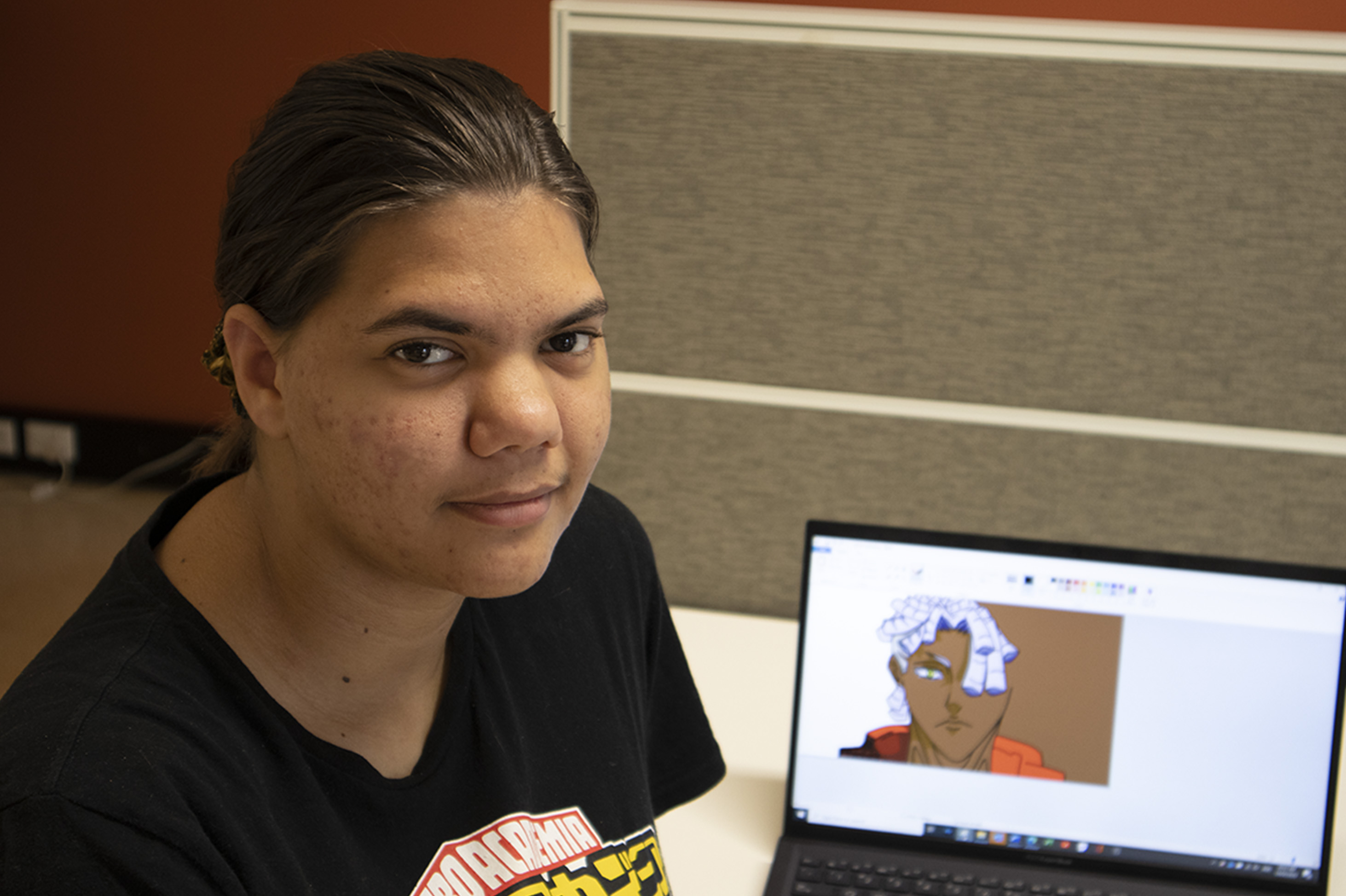

An exciting new initiative from Batchelor Institute’s Graduate School has seen two new Communications Apprentices recently commence yearlong roles at the Desert Peoples Centre in Alice Springs.
Ruth Katakarinja and Ruby Kunoth-Monks are the first to commence under the initiative, with two more apprentices expected to join later in 2022. In their new roles, Ms Katakarinja and Ms Kunoth-Monks will undertake entrepreneurship training in parallel with supporting the Institute’s work on education and research—honing their abilities while also providing valuable new ways to communicate information and engage with stakeholders.
The concept of a Communications Apprenticeship was developed through consultation with businesses in Alice Springs, Ntartia, Ltyentye Apurte, and at Yulara and Mutijulu.
“It is one response to the need for creative communicators and digital capacity within businesses and among service providers across remote Australia, where First Nations cultural and linguistic strength and diversity is prevalent,” said senior academic manager Dr Judith Lovell.
“The Communications Apprenticeship pathway is designed to engage young First Nations creatives—people wanting to explore their own creativity and entrepreneurial passion—and to bring their skills into their current workplace as well as to learn on the job,” she added.

Ms Katakarinja, who is passionate about painting and jewellery making and previously worked at Ormiston Gorge, said she was motivated to apply for the role because of a desire to develop new skills and to achieve her goals with a network of people to support her.
“I am looking forward to graduating and to starting my small business. In this role I look forward to gaining skills and knowledge on the job that will be beneficial for the future,” she said.

Ms Kunoth-Monks, an Arrernte woman with a talent for drawing, especially creating anime using her own designs and style, said she was keen to produce her first book series. She applied for the position because she wanted to take the chance to “create something new.”
Through the anime series, she hopes to find out “how other organisations might learn to use such a product for better communication for education and change, such as to improve social justice outcomes for First Nations people.”
The apprentices encouraged other young people who may be considering applying for similar opportunities to be ready to work hard to make dreams real, and to keep working towards becoming the best version of oneself.
“By enabling entrepreneurial creatives to bring all their skills and strengths into the workplace, we believe there are many possible positive outcomes—from improved health and wellbeing knowledge, to a stronger uptake of educational pathways into a wider range of industries,” said Dr Lovell.
